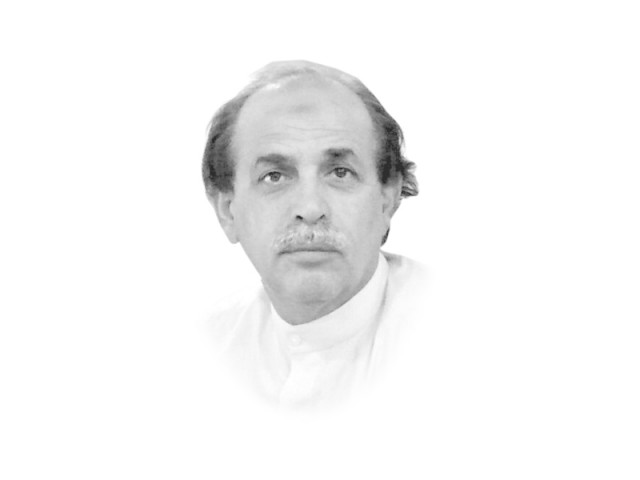Immunisation strategy based on consensus
We need to create awareness amongst the general public regarding the importance of vaccination and immunisation

The writer is city editor of the Peshawar desk at The Express Tribune
The unchecked travelling between Pakistan and Afghanistan is considered a major source of the transportation and spread of the polio virus. In the early 1980s, in accordance with the international community’s call, Pakistani authorities initiated an immunisation plan for children below the age of five, to protect them from nine diseases, including polio. In practice, however, the majority of the population couldn’t be covered. With the help and coordination of the WHO and Unicef, arrangements were made in hospitals and clinics, not only for the vaccination of children, but also to address the issue of malnutrition. Efforts remained quite satisfactory, as there was a sharp decline in the incidence of all diseases.
Initially, the Taliban, al Qaeda and other such movements had no reservations over the vaccinating or immunisation of children. From 1996 till 2001, Taliban rulers in Afghanistan requested the WHO and Unicef to help in the immunisation and vaccination of children. In 2000, the Taliban and their rivals declared a ceasefire to allow vaccinators to fulfill their tasks. But the situation took an ugly turn soon after 9/11. Later, the US military action in Abbottabad on May 2, 2011, only complicated the situation further. Opposition to the immunisation drive grew stronger as all volunteers, health workers and their security guards became targets of terrorist attacks. As a result, 2014 recorded the highest number of polio cases in Pakistan’s history.
After coming to power in Khyber-Pakhtunkhwa (K-P), the province most badly affected, the PTI introduced the Sehat Ka Insaf programme against polio and other diseases. The programme was initiated throughout K-P and adjoining tribal areas. So far, its outcomes are satisfactory. All tribal children, upon entrance and arrival from the tribal belt, are vaccinated. Similar efforts are also in progress in Balochistan and other parts of the country.
WHO’s assistance programme for the eradication of polio in Pakistan is set to end by 2018. So far in 2015, 28 cases have been reported, as against 306 in 2014. According to a report, the vaccination drives in remote parts of K-P and Fata are believed to be one of the major reasons for a significant decline in the number of polio cases in the country this year.
Education, literacy and awareness play key roles in eradication of such diseases. Despite their backwardness and far-flung geographical location, Gilgit-Baltistan and Chitral see a low incidence of polio because the literacy rate in these areas is satisfactory compared with that of K-P and Fata. In addition, trends of militancy and extremism in Gilgit-Baltistan are quite insignificant and its people are known for their patience, peace and tolerance.
What we need is the creation of awareness amongst the general public regarding the importance of vaccination and immunisation. Without this, no goals that have been set with regard to immunisation drives can be achieved. It is time to focus completely on initiating such awareness programmes. While government functionaries are putting in a lot of time in this regard, there is little proper monitoring and checking of these efforts, which has made them almost meaningless. In developed countries, activities and functions of public institutions are monitored through various agencies. Governments frame their policies in consultation with thinks tanks and representatives of civil society organisations. Decisions made after consulting stakeholders always yield results. This is what we must focus on as well.
Published in The Express Tribune, August 15th, 2015.
Like Opinion & Editorial on Facebook, follow @ETOpEd on Twitter to receive all updates on all our daily pieces.















COMMENTS
Comments are moderated and generally will be posted if they are on-topic and not abusive.
For more information, please see our Comments FAQ